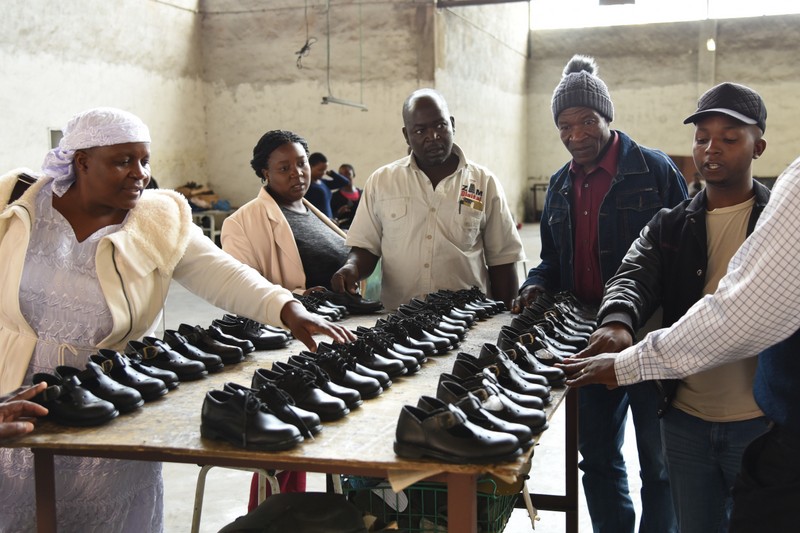
The COVID-19 pandemic is the worst thing that has happened to many small scale enterprises across the globe, but the Zimbabwe leather and textile sector has defied the odds. Two clusters, one dealing with leather and the other in textiles have recorded over USD 36,600 in profits on goods produced during the COVID 19 era.
The textile cluster is located in Chitungwiza south of the capital, Harare while the leather cluster is in Bulawayo. The clusters managed to withstand the pandemic effects partly by changing tack and producing essential products needed to mitigate the pandemic such as face masks. This was in addition to their customary school uniforms and sportswear.
The textile cluster was supported the COMESA Adjustment Facility (CAF), Regional Integration Support Mechanism (RISM) which is funded by the European Union. In the first phase of the funds’ disbursement, Zimbabwe got €4.2 million through a Grant Agreement signed in September 2014 between the Government and COMESA
At the onset of the Coronavirus pandemic, the textile cluster switched to manufacture products which required readily available raw materials and COVID personal protective products. In majority of cases, the customers would provide the materials with the clusters doing the manufacturing.
The total value of textile produced during the period is estimated at USD 16,600. The Cluster also managed to train eight people in tailoring (5 female and 3 male) who are still under apprenticeship.
Despite the various challenges, the pandemic has created a unique demand for local textile products. The cluster is therefore expecting an increase in its business orders from schools across the country.
The leather cluster has also continued to thrive, producing an array of products ranging from formal shoes, school shoes, sandals and leather belts. Within the pandemic period, the cluster has produced goods worth USD 20,000 with Namibia being one of the export destination for school shoes.
During the first two phases of the lockdown, which were stricter, the government of Zimbabwe supported the clusters with documentation which designated them as essential services. This enabled them to open and operate while adhering to the required health protocols.

